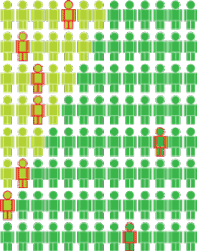About
|
Urban Presence was set up in 1996 with two aims
resourcing of Christians and Churches living and working in inner-city areas of Manchester recognition of such areas within the wider Christian Community as modern ‘mission-fields on our doorsteps’ In the Bible Jesus talks about those who follow him as being salt and light in the world (Matt 5:13-14). In Manchester around 75% of the population live in the urban areas of the city, but 75% of the Christian population live in the suburban areas. This means most of the salt and light is spread among a minority of the people. Urban Presence was about trying to address that imbalance. Read more about the Urban Context.
|
|
|
resourcing Working with people, organisations and churches with vision to serve and minister in an urban context, our role was usually an enabling and supportive one ‘behind the scenes’, to better facilitate the main activities. Over the years this included providing training of various types from practical to academic (in partnership with the Nazarene Theological College), pastoral support, setting up of new charities and their infrastructure (e.g. finding trustees, and other resources), designing printed and web-based publicity, and organising fund-raising and other events. There was a lot of informal networking and linking of urban activists, through personal contacts and a mutual support gathering called ‘RefUrb’.
We also supported several community-based projects and organisations working from a basis of shared concern to generate some good news in urban localities, often through forms of Community Organising.
|
recognition Although a majority of people in the UK live in inner-city areas, a majority of God’s people don’t: creating a 'mission-field on our doorsteps'. We believe this imbalance is the result of a deficient theology of Christian calling leading to the omission of 'where' from most discipleship. Working from the assumption that this dis-location does not reflect God’s attitude to the poor, we sought to encourage everyone to seriously consider the ‘where’ aspect of Christian calling, as well as the ‘what’. This aspect of our work involved us meeting with national Christian organisations to ask where urban ministry comes in their priorities, and investigating levels of learning opportunities in colleges and at conferences. We have links with others doing similar work around the country.
|




